Introduction
Did you know regular blood testing emerges as a silent guardian of women’s health? Many overlook subtle signs their bodies send, dismissing them as consequences of stress or a busy lifestyle. Consider Sarah, a 29-year-old software developer who chalked up her constant fatigue and irritability to long hours at work. However, a routine blood test revealed anemia, a condition she had never considered but that was silently affecting her quality of life.
Remember, ladies – staying on top of our game means rolling up our sleeves for those routine blood checks. Imagine health screenings as your health guardians – they highlight hidden troubles such as hormonal imbalances and early markers of long-term illnesses, ensuring you start fighting back ASAP. Looking at these top ten crucial women’s specific blood tests gives every woman a deep understanding of her health like never before. Regular medical check-ins are a must for women – they play double duty by managing known health problems and catching possible future ones before they grow bigger.
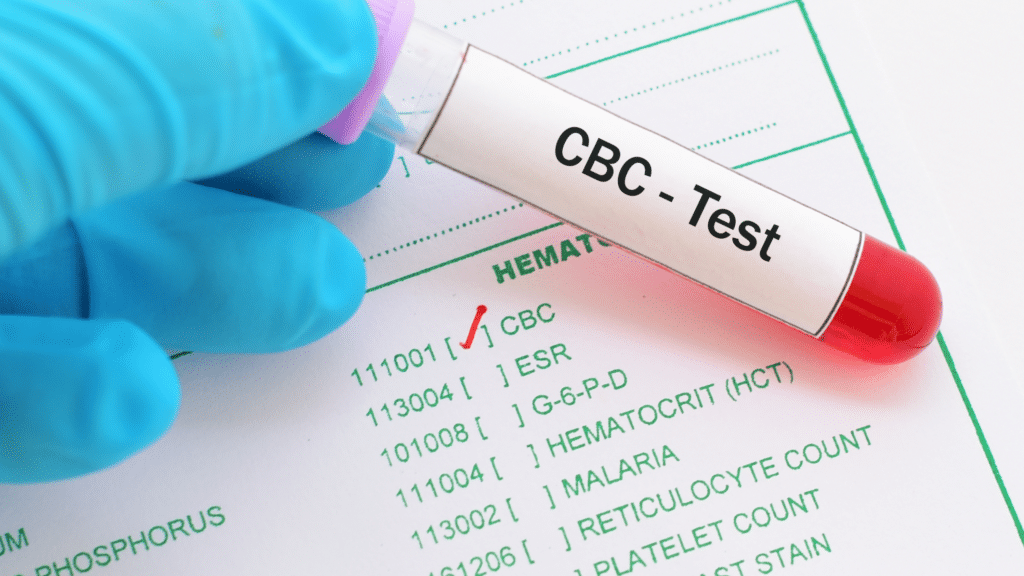
Complete Blood Count (CBC)
The Complete Blood Count (CBC) is akin to a medical reconnaissance mission, providing a comprehensive snapshot of the health of your blood. Essential components like red blood cells, white blood cells, hemoglobin, hematocrit, and platelets are all scrutinized under this test. What are the stats on your health? They’re not mere digits. Think of them as a storybook about your well-being, rich with insights. Think of red blood cells as the body’s express shipping service, zipping oxygen where it’s needed most. A low count might explain why someone like Sarah felt perpetually exhausted.
For diagnosing everything from anemia to infection and certain types of blood cancer, there’s nothing quite as essential as a CBC test. Many women, especially during their childbearing years, face anemia. This common health snag can knock you down with extreme tiredness, leading to more serious issues if ignored. The data from the WHO World Health Organization suggests that approximately 30% of women worldwide are anemic, often due to iron deficiency.
Regular CBC testing is not only advisable; it’s essential. Think of it as your personal health detective, always on the lookout for clues that something might go wrong and stepping in early to keep small issues from turning serious.

Lipid Profile
Understanding your cardiovascular health can be as straightforward as managing a financial budget, and the lipid profile test serves as a crucial ledger in this process. This test is like a health check-up for your blood’s fat levels, peering into total cholesterol, the good (HDL) and bad (LDL) guys, and triglycerides. Just like how you balance your checkbook, keeping a close eye on various factors is crucial for peak health—it’s all about finding that perfect equilibrium between assets and liabilities.
For instance, LDL cholesterol, often labeled as “bad” cholesterol, can build up and clog arteries, much like how too much debt can overwhelm your finances. Think of HDL cholesterol as your body’s cleanup crew, scooping up excess from your arteries to keep them clear – it’s similar to how setting aside money helps you weather unexpected expenses. When the amount of triglycerides – another kind of fat – climbs too high in your body, it puts you on thin ice with heart health risks.
The American Heart Association suggests that it is important for women over the age of 20 to have their cholesterol levels checked regularly, around every four to six years, as a part of assessing their risk for cardiovascular diseases. Stay ahead of the game and keep heart disease at bay with consistent health checks—it’s the top killer of women around the globe.
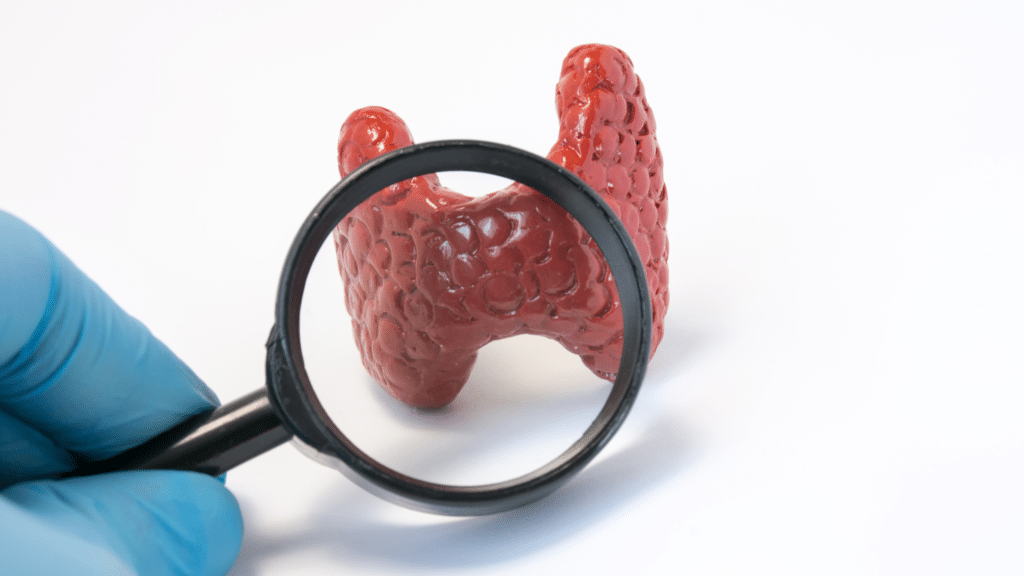
Thyroid Panel
Think of a thyroid panel as your body’s status update, giving you the lowdown on how that small gland manages significant responsibilities.
The tiny thyroid gland holds the reins of your body’s metabolism, energy vibes, and hormonal equilibrium tighter than you’d think. To monitor this gland’s health, a thyroid panel is employed, typically including tests for Thyroid Stimulating Hormone (TSH), Triiodothyronine (T3), and Thyroxine (T4). Think of these tests as our way of zooming in on your thyroid’s functionality – detailed and precise.
Emily, a teacher at 35, found herself baffled by sudden weight gain and constant tiredness. Her symptoms were puzzling until a thyroid panel revealed hypothyroidism—an underactive thyroid gland. Because of what she was going through health-wise, it made her metabolism drag its feet, piling onto her overall struggles. With proper medication, Emily’s energy levels improved, and she felt like herself again.
Your mood swings, waistline changes, and daily pep might hinge on the performance of the tiny but mighty thyroid gland. We’re not just talking about catching health issues here—it’s also vital to pick up on and handle those subtle differences in our bodies for better daily living. Ladies, listen up! Our thyroids can sometimes throw us curveballs more often than guys’. Are we catching those early with regular testing? Now, that’s competent healthcare.

Hormone Panels
Imagine your body as a busy city; hormones are the signals that keep traffic moving smoothly, affecting your growth, energy levels, and even emotions. Estrogen and progesterone are not just hormones for ladies—they’re essentially the managers of female reproductive wellness plus period predictability. That’s why monitoring their levels closely becomes nothing short of vital. Alongside other checks, this test shines a spotlight on crucial fertility friends – luteinizing hormone (LH) and follicle-stimulating hormone (FSH), painting a complete picture of your endocrine orchestra.
Take the case of Anita, who experienced irregular periods and difficulty conceiving. It turns out that the secret to understanding her health issues lay in the hormone tests—those were what pointed us toward polycystic ovary syndrome (PCOS) and how best to treat it. Hormonal therapy was the key that allowed Anita to stabilize her monthly cycles and improve odds in favor of conception.
It’s not all about fertility when it comes to hormone panels – they play a crucial role in understanding our overall well-being, too. Ever wonder how doctors catch health hiccups or know precisely what your body needs hormonally? It’s all thanks to these savvy tests. They even help demystify the mystery of menopause. For lots of ladies out there, keeping tabs on those tricky hormones with a comprehensive panel is critical to feeling awesome more often than not.

Vitamin D Level
Vitamin D, often dubbed the “sunshine vitamin,” is crucial for more than just bone health. It plays a significant role—think of it as your body’s backup dancer—supporting immunity, muscle fitness, and emotional well-being. Despite its importance, Vitamin D deficiency is surprisingly very common, especially in areas with limited sunlight exposure or individuals who spend little time outdoors.
The story of Laura, a freelance graphic designer who worked from home in a northern city, illustrates this well. She suffered from frequent infections and general fatigue, symptoms she never linked to Vitamin D deficiency until a blood test revealed her low levels. With a few well-chosen supplements, Laura’s energy soared, and her health improved significantly.
Finding out if you’re short on Vitamin D is easy, and it’s vital. This simple check-up can spot sneaky health issues dragging down your daily energy and mood. For a healthy you, don’t overlook Vitamin D’s power; it does wonders across all your body systems. Regular screenings are essential for those at risk of deficiency, including those living in northern latitudes, wearing sunblock consistently, or with darker skin.
Getting a baseline Vitamin D Hydroxy blood test is a great start to seeing if Vitam D might be the problem.

Iron Tests
Iron plays a crucial role in the formation of hemoglobin, the protein that is responsible for transporting oxygen throughout the body via red blood cells. It is an indispensable component of this process, and its presence is vital for proper bodily function.Iron deficiency ranks as the top nutritional shortfall worldwide, hitting women particularly hard due to menstrual blood loss. Think of serum ferritin and total iron-binding capacity (TIBC) tests as your personal health investigators. They get down to business by assessing whether enough Iron is hiding in storage or cruising freely through your bloodstream doing its job.
For instance, consider Julia, a dedicated marathon runner and mother of two, who began experiencing overwhelming fatigue and shortness of breath during her training sessions. These symptoms were initially attributed to her busy lifestyle. Blood tests showed she was running on empty when it came to Iron, which explained why her athletic performance had taken a nosedive and why she felt like her energy tank was perpetually on E. With appropriate iron supplementation guided by her test results, Julia was able to regain her stamina and continue her passion for running.
Let’s talk about keeping our energy up, minds clear, and bodies healthy with something as simple as monitoring our iron status regularly. For ladies grappling with low-iron woes or trying to prevent them altogether—this step cannot be skipped! Women who might have kids soon, people living an active sports life, and anyone sticking to a strict diet needs this iron blood test the most.
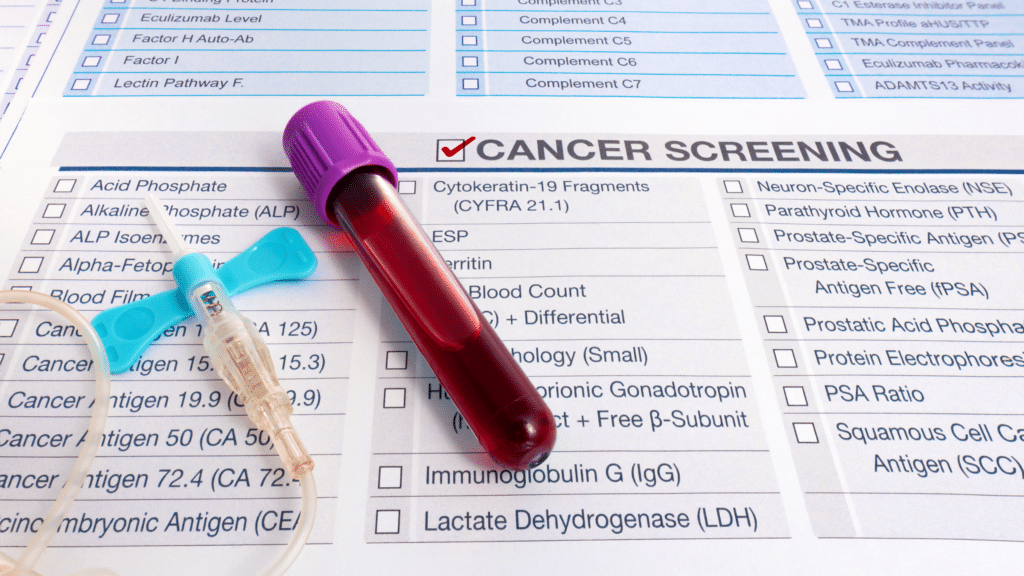
Cancer Markers
Cancer markers are substances, often proteins, produced by the body in response to cancer or by the cancer tissue itself. These signals pop up in the bloodstream, serving as reliable trackers to measure if treatment is hitting the mark or if there’s a risk of things flaring up again. Imagine a world where catching cancers early is simpler. That’s what markers such as CA-125 for ovarian and CA 15-3 for breast cancer do—they signal the need to pay attention sooner.
Consider the scenario of Helen, a 54-year-old who was being monitored for ovarian cancer risk due to her family history. Regular CA-125 tests allowed her healthcare providers to detect early changes that suggested cancer development. Catching the problem early meant we could jump right in with help, and it really boosted her chances for a better outcome.
While not used for initial cancer diagnosis, cancer marker tests play a crucial role in the management and monitoring of individuals at risk or those already diagnosed with cancer. You get personalized treatment options paired with ongoing health evaluations for complete peace of mind. With breast and ovarian cancers casting such a long shadow over women’s health, weaving in tests for key markers during standard check-ups could very well be our lifeline to longevity. Cancer screening blood panels are a great way to investigate.
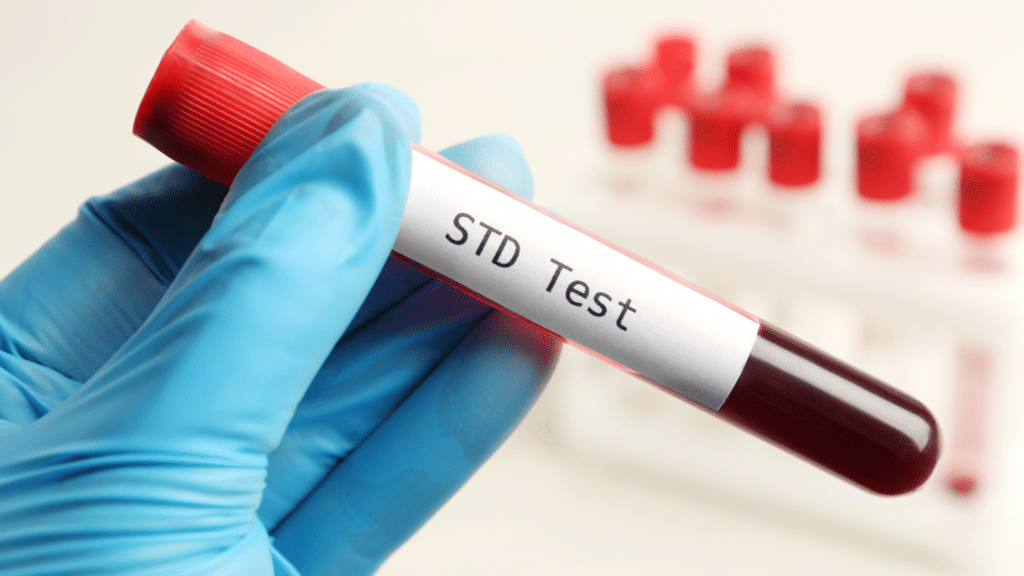
Sexually Transmitted Diseases (STD) Panel
Sexual health is a critical aspect of overall health, yet it is often overlooked or stigmatized. Regularly screening for STDs isn’t just about personal health; it’s also about caring enough not to spread infections. An STD panel typically tests for a range of diseases, including HIV, hepatitis B and C, syphilis, and others. Spotting signs early through testing opens the door to treatments that really work, keeping bigger health scares at bay.
For example, consider the story of Lisa, a 28-year-old who learned through routine screening that she had contracted hepatitis C, likely from a previous relationship. Although initially shocked, the early diagnosis allowed her to receive antiviral treatment promptly, effectively clearing the virus from her body and preventing liver damage.
Regular STD testing is recommended for all sexually active individuals and is especially crucial for those with multiple partners or those at increased risk of exposure. Putting knowledge first makes it easier than ever for someone to decide wisely when it comes to being intimate. Breaking down barriers starts with us—having candid talks paired with consistent check-ups moves mountains in erasing STD stigmas, leading to more intelligent, more resilient communities. STD blood tests are a great way to screen for sexual health.
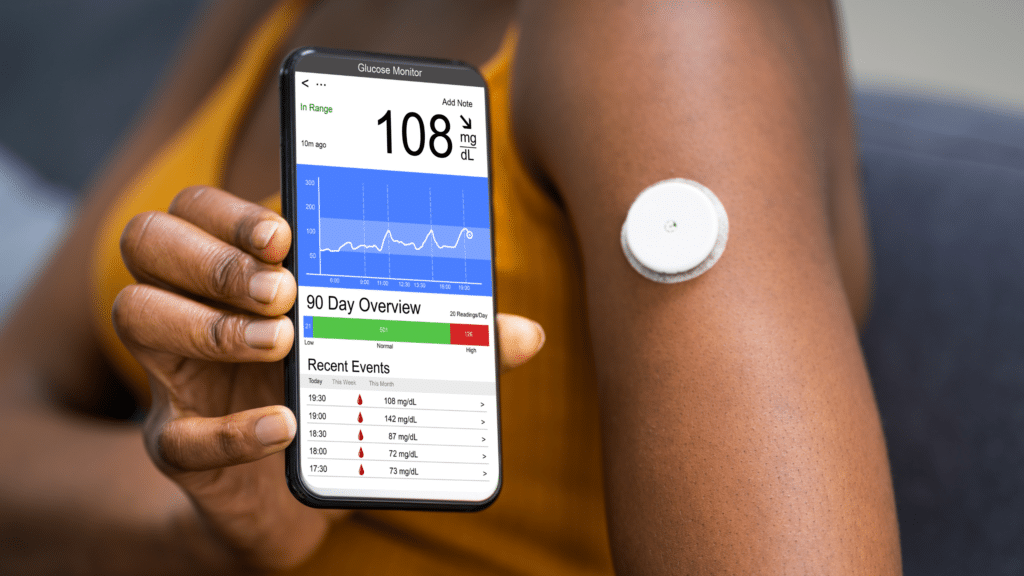
Blood Glucose Panels
The amount of sugar coursing through our veins needs constant checking with Blood Glucose blood tests – it’s vital for our well-being.
For women aging gracefully, staying sharp about their blood glucose can make all the difference in catching and managing diabetes early on. Blood glucose tests measure carefully the amount of sugar in the blood to identify hyperglycemia (high blood sugar) or hypoglycemia (low blood sugar), both of which can have profound health implications if not managed properly.
Take the case of Maria, a 45-year-old with a family history of type 2 diabetes. Even with her constant on-the-go lifestyle, she noticed herself getting unusually thirsty more often, needing to use the bathroom frequently, and dropping weight without trying. A simple blood glucose check was all it took to reveal she was on the edge of becoming diabetic. But with quick lifestyle tweaks, she managed to dodge that bullet.
Tracking one’s journey with measuring how much of that sweet stuff – yes, I’m talking about sugars – floats around in our bloodstream and goes far beyond simple diagnosis. People tackling life head-on with diabetes use this data as their compass, ensuring every step taken keeps those digits within safe harbors. Keeping tabs on your health with routine glucose blood tests can sidestep serious troubles that come with diabetes – think heart trouble, weakened kidneys, and less feeling in your fingers and toes.

Inflammation Tests
Signs of inflammation are like the body’s alarm system, telling us when something’s not right inside.
To detect hidden inflammation in the body, doctors can investigate for clues indicating a range of conditions, from infections to autoimmune disorders or cancer, with Auto-Immune blood tests. Medical pros turn their eyes toward tests such as CRP and ESR rates. These tests are like a health detective’s best tool, catching sneaky conditions that don’t initially wave any red flags.
Imagine being in Anne’s shoes – at 40 years old and clocking in daily office hours only to be greeted by unexplained fatigue that clings and joints that ache without reason. Her symptoms were frustratingly vague, leading her to multiple specialists without a precise diagnosis. Eventually, a blood test that checked her CRP and ESR levels revealed they were high – a classic sign pointing to some autoimmune disease lurking beneath. Knowing what they needed to know, the folks looking after her health were able to come up with just the right kind of care. It was like they turned over a new leaf for how good she could feel.
When you’re managing chronic conditions, paying attention to inflammation levels can lead the way in fine-tuning your treatment strategy quickly—catching any upsurges right away helps big time. Imagine having a way to find hidden health mysteries while tracking known challenges – this ensures our solutions are always delivered right when needed.
Conclusion
Regular blood tests do more than check boxes on a healthcare list; they give women the power to manage their well-being actively. With a toolkit that includes comprehensive check-ups such as full blood profiles and laser-focused searches for telltale signs of cancers, among others – we’re better equipped than ever. These diagnostics allow us to detect lurking dangers early on while managing any known concerns more effectively, thus paving the way toward sidestepping possible risks awaiting around the corner. Getting a grip on what each test tells us and understanding their value lets women team up with their doctors to craft a health screening plan that’s just right for them.
Don’s Wait!
Don’t wait for symptoms to tell you something is wrong. Now’s the time to look after yourself—immediately make an appointment for important women specific blood screenings. Easily order your tests at Walk-In Lab confidentially and take a significant step towards maintaining and enhancing your health and well-being and stopping health problems before they start beats trying to fix them down the road.
Act now to stay healthy tomorrow.

